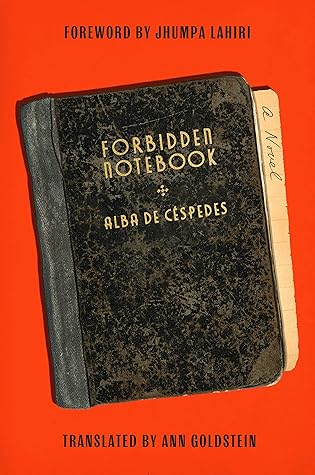More on this book
Community
Kindle Notes & Highlights
From Petrarch to Gramsci to Woolf to Lessing, all diaries and notebooks, whether intended for publication or not, whether invented by their authors or not, whether framed as (or within) novels or not, are all dialogues with the self. They are instances of self-doubling and self-fashioning. They are declarations of autonomy, counternarratives that contrast and contradict reality.
The fictionalized diary has always been especially appealing in that we get to know the character not only as a person but also as a writer. This additional authorial persona is especially provocative in light of female consciousness, which has struggled to find its place in history and in the literary tradition.
Forbidden Notebook originated as a serial novel. It was published in the magazine La Settimana Incom Illustrata, between December 1950 and June 1951, gaining readers from week to week. Written in the form of a diary, it takes place during the same six months as its publication.
If we can learn to understand the smallest things that happen every day, then maybe we can learn to truly understand the secret meaning of life. But I don’t know if it’s a good thing, I’m afraid not.
It’s terrible to think that I sacrificed my entire self to beautifully perform tasks that they consider obvious, natural.
maybe it’s hard to maintain friendships for a lifetime no matter what. In reality, at a certain moment, each of us changes, becomes different, some go forward, others remain fixed, and thus we move in opposite directions, so there’s no longer a meeting place, no longer anything in common.
We’re always inclined to forget what we’ve said or done in the past, partly in order not to have the tremendous obligation to remain faithful to it. Otherwise, it seems to me, we would all discover that we’re full of mistakes and, above all, contradictions, between what we intended to do and what we have done, between what we would desire to be and what we are content to be.
If we’re not open to the people dear to us—whom we live with, day after day, in the family—to whom are we open? When is it that we are truly ourselves?
I wondered what I’d want my son’s wife to be like and, after thinking about it a bit, I decided: strong. Maybe that’s why a lot of parents want their son’s wife to be wealthy; ultimately it’s the same thing. But I think what would be best is an even more profound strength, one that not even money can provide. Wealthy people are afraid of losing their money, and that fear is already a weakness.
It’s so hard to see the people around us as different from the figures they’re compelled to represent for us.
“At a certain age,” he continued, “everything we’ve done is no longer enough. It was useful only in making us what we are. And just as we are, now that we’re truly ourselves, what we’ve wanted to be or could be, we’d like to start to live again, consciously, according to our current tastes. Instead, we have to continue to live the life we chose when we were someone else.
Marriage isn’t our goal, we don’t want to be obligated to love each other; every day we choose freely to love each other.
“A woman who works,” Clara continued, “especially a woman of our age, always carries in herself the struggle between the traditional woman she’s been taught to be and the independent woman she’s chosen to become. There’s a constant conflict. To resolve it, to overcome it, costs you a lot, above all in the eyes of men.
And now you’ve got everything on your shoulders, I know it well, the house, the office. I don’t know how you do it. I couldn’t be so strong. Or maybe we never can be strong when we’re alone, it’s the certainty of being necessary to others that forces us to be strong.
It’s that hope for happiness that consumes a woman day after day, destroys her.
It’s strange: our inner life is what counts most for each of us and yet we have to pretend to live it as if we paid no attention to it, with inhuman security.


